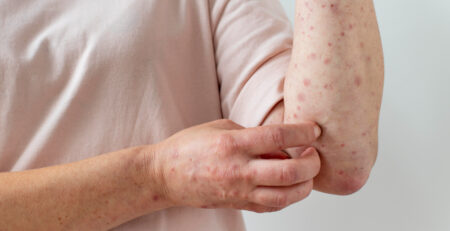Age and Female Fertility: Fertility Decline and Advanced Maternal Age
As women age, their fertility undergoes a natural decline, impacting their ability to conceive and carry a pregnancy to term. This article explores the relationship between age and female fertility, focusing on the challenges associated with advanced maternal age and how modern advancements can assist women in achieving pregnancy later in life.
Understanding Female Fertility Decline
Female fertility is influenced significantly by age. Women are born with a finite number of eggs, and as they age, both the quantity and quality of these eggs diminish. This decline begins to accelerate as women reach their mid-30s and becomes more pronounced in their 40s. Factors such as the age-related decline in ovarian function and the increased likelihood of chromosomal abnormalities in eggs contribute to reduced fertility with age.
Defining Advanced Maternal Age
Advanced maternal age refers to pregnancy in women who are 35 years or older. While societal trends have shifted towards later childbearing due to various reasons such as career aspirations and personal circumstances, it’s important to recognize the biological implications of delaying pregnancy. Women who conceive at an advanced age face higher risks of complications during pregnancy, including gestational diabetes, preeclampsia, and miscarriage.
The Role of Modern Fertility Treatments
Advancements in reproductive medicine have revolutionized the landscape of fertility treatment, offering hope to women struggling with age-related infertility. Techniques such as in vitro fertilization (IVF) have enabled women to conceive by using assisted reproductive technologies that bypass age-related fertility challenges. IVF involves fertilizing eggs with sperm outside the body and transferring embryos into the uterus, providing viable options for women in their late 30s and beyond.
Lifestyle Factors Affecting Female Fertility
While age is a critical factor in female fertility decline, lifestyle choices also play a pivotal role in optimizing reproductive health. Maintaining a healthy weight through balanced nutrition and regular exercise can positively impact fertility outcomes. Avoiding smoking, excessive alcohol consumption, and exposure to environmental toxins are crucial steps in preserving fertility potential.
Emotional Considerations in Fertility Journey
The journey towards parenthood can be emotionally taxing, especially for women navigating age-related fertility challenges. Coping with the stress of infertility treatments and grappling with the societal pressures of childbearing at a certain age can significantly impact mental well-being. Seeking emotional support from loved ones, support groups, or fertility counselors can provide essential coping mechanisms and resilience throughout the fertility journey.
Preparing for Pregnancy at an Older Age
For women contemplating pregnancy at an older age, proactive planning and preparation are essential. Preconception consultations with healthcare providers can evaluate overall health status and identify potential risk factors that may affect fertility and pregnancy outcomes. Initiating prenatal vitamins, particularly those containing folic acid, can mitigate the risk of neural tube defects and support optimal fetal development.
Societal Perspectives on Age and Fertility
Societal attitudes towards age and fertility have evolved, reflecting broader cultural shifts in family planning and reproductive choices. While advancements in reproductive technology offer extended fertility options, it’s crucial for women to weigh personal aspirations against biological realities when considering the timing of childbirth. Empowering women with comprehensive reproductive health education and access to fertility preservation options can facilitate informed decision-making regarding family planning.
Conclusion
Age is a critical determinant of female fertility, influencing reproductive outcomes as women approach and surpass their mid-30s. Advanced maternal age presents unique challenges in conception and pregnancy, necessitating a multidisciplinary approach that integrates medical interventions, lifestyle modifications, and emotional support. By embracing proactive fertility management strategies and leveraging advancements in reproductive medicine, women can optimize their chances of achieving successful pregnancies later in life. Navigating age-related fertility decline requires informed decision-making, compassionate support systems, and personalized care that respects individual reproductive timelines and aspirations. As society continues to evolve in its understanding and support of age-related fertility challenges, empowering women with knowledge and resources remains pivotal in fostering reproductive autonomy and holistic well-being.










